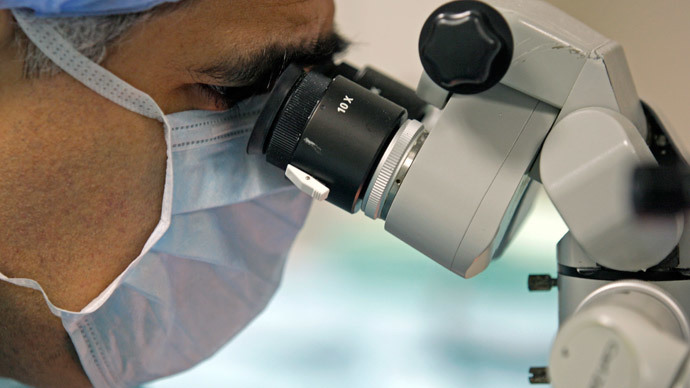NHS to cut ‘poorly thought through’ cancer drug fund

Cancer experts have backed a cost-cutting plan that looks likely to end the use of highly priced cancer medicines in the NHS.
Critics believe the Cancer Drugs Fund has been the “most poorly thought through pieces of health public policy.”
The National Health Service (NHS) England will next week disclose the results of a review targeted at cutting the soaring bills of the Cancer Drugs Fund, which was set up by the coalition government to pay for expensive new cancer drugs.
The National Institute for Health and Care Excellence (Nice) said the drugs are not cost-efficient.
Prime Minister David Cameron launched the fund in 2011 budgeted at £200 million a year. It has since massively overspent and is likely to top £380 million by the end of the financial year.
The budget was increased from £200 million to £280 million this year, and is guaranteed until March 2016. By that time it will have cost £1.16 billion.
Experts said patients would have been better served if the millions of pounds ring-fenced for life extending career drugs had been made available to the wider NHS.
Among the cancer drugs that could be ejected from the NHS are at least one for treating cancer of the prostate, one for breast cancer and one for bowel cancer, according to pharmaceutical firms, who have called the decision unfair.
They have raised the possibility of legal action against NHS England.
The government's flagship Cancer Drugs Fund discriminates against patients who do not have the disease and has done “more harm than good,” doctors and health economists have said.
Eisai, the manufacturer of the advanced breast cancer drug Eribluin, which it sells under the new brand name Halaven, said: “The decision did not recognize the overall survival benefit of the drug.”
Nice rejected the drug, claiming it was not cost-effective.

“Access to the fund has ensured that drugs like Eribulin have become the standard of care for women with metastatic breast cancer in England,” said Dr Vivek Misra, consultant in clinical oncology at the Christie hospital Manchester.
“This evaluation now means that these women can no longer be treated with the drugs thousands before them have benefited [from],” she told the Guardian.
Gary Hendler, president of Eisai’s global oncology business unit told BBC Radio 4 the company hadn’t been offered the chance to drop the price.
“We are happy to be flexible to ensure that the Cancer Drugs Fund is not overspent,” he said. Hendler declined to say, however, whether the drug was as cost-effective as existing alternatives.
Sanofi, another drugs company, said its prostate cancer drug Jevtana and bowel cancer treatment Zaltrap are also among those being withdrawn.
“We need to get maximum value for every pound we spend through the CDF,” said Professor Peter Clark, chair of the fund.
He added, the CDF can no longer sustain a position where they are “funding drugs that don't offer sufficient clinical benefit, when drugs that will do more for patients are coming on stream.”
Other experts say the extra money for cancer drugs meant there was no pressure on companies to reduce their prices and that other parts of the NHS were losing out.
Professor Richard Sullivan, director of the Institute of Cancer Policy, described the fund as “one of the most poorly thought through pieces of health public policy.”
“The provision of an exceptional fund for just cancer medicines made no sense with respect to much greater financing needs for radiotherapy and surgery, which are the primary methods of cancer control and cure, thus failing tests of fairness.”
Sullivan said the CDF was a “cheap way to avoid the critical socio-political problem.”
He believes this is why cancer medicines cost “so much when they deliver only marginal benefits.”












